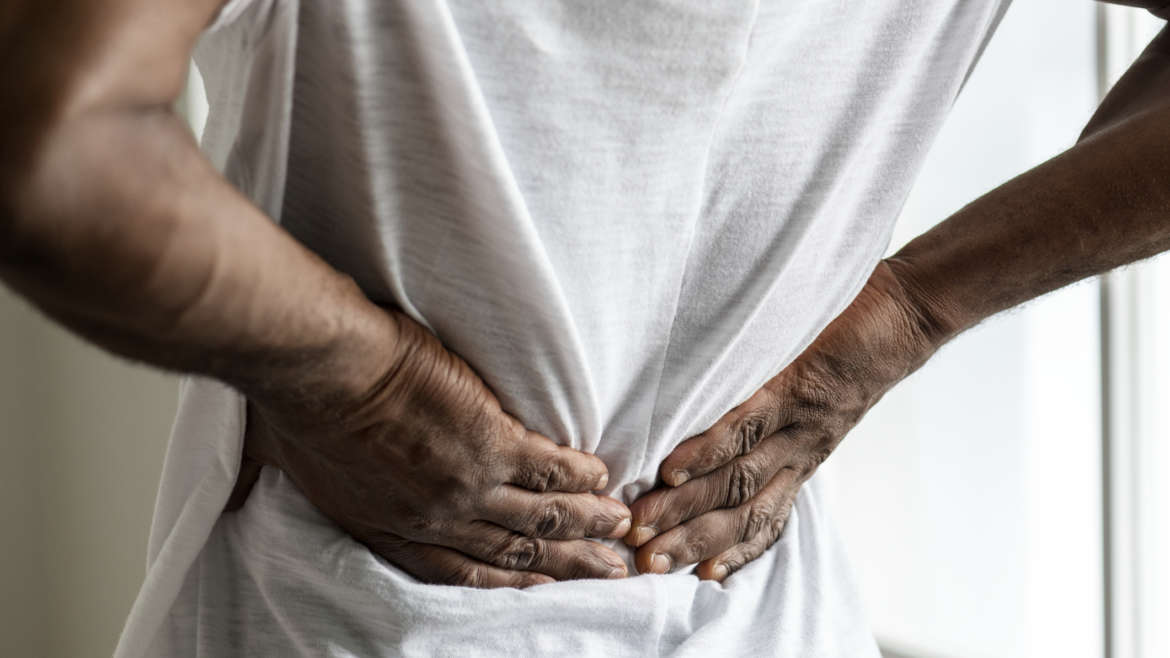Back pain is a very real complaint that affects over half a billion people worldwide. More than eight million adults in the UK reported back pain last year, at a cost to the economy of £10 billion.
Why do so many people suffer from it and how can we counteract this growing burden to our health and economy?
Injury
Our spines are a series of ligaments, muscles, bones and discs which can and do withstand a lot. But if they’re subjected to damage or trauma, it can result in a great deal of pain.
You would think it would be fairly easy to pinpoint back pain that occurs as a result of an injury, but the back is such an integral part of the body, with connections to many other areas, that it might not be as obvious as you first think.
Damage to a different part of the body might manifest itself as back pain. For example:
- Lifting heavy objects can put enormous strain on the back muscles and you may feel pain instantly as a result.
- Twisting awkwardly, or a sudden jerking movement, can cause a muscle strain, leading to back pain.
- Falling can cause back pain – tumbling down stairs or falling over usually result in an awkward landing or direct impact to the back.
Whiplash can lead to pain in the lower back.

Lifestyle
If your back has been niggling for a while and gradually turns into full-blown back ache, it could well be lifestyle-related. This is becoming more common as our lives take a turn for the sedentary, both at work and leisure.
- Perhaps you spend long periods sitting down, at a desk. You may have got into a habit of sitting in a particular way which isn’t kind to your posture – shoulders raised, chair too low, phone cradled on one shoulder.
- Not moving enough: apart from sitting badly, are you sitting for too long? Get up regularly to stretch your legs and change position. This will relieve pressure on the base of your spine and neck as well as letting blood circulate around your body better.
- How much exercise do you do? There always seem to be conflicting reports of how much you should be doing – but being proactive is the main thing and finding something you are motivated enough to do and keep at. Preferably something not seated!
- How much stress are you under? When we are feeling stressed we tend to tense up and that can lead to a sore back.
Spine-related problems
There are many conditions that affect the spine which will cause back pain. You may already know if you have one of these issues or you may suddenly experience back pain and can’t attribute it to anything else. If that is the case, it is best to speak to one of our Osteopaths.
- A prolapsed – or slipped – disc happens when part of the disc in question bulges. It can press against a nerve which leads to back pain.
- Sciatica is an irritation of the sciatic nerve, which goes from your hips to your feet. You may feel a burning or tingling pain or numbness. Sciatica usually affects the backs of the legs, bottom, feet and toes rather than just your back.
- There are several other causes of back pain, including arthritis, osteoarthritis and scoliosis. These come with other symptoms and you may well already be under medical care and supervision to manage them.
Back pain usually gets better by itself within a few weeks or sooner. If it doesn’t, or if you are suffering from debilitating pain, see one of our Osteopaths. We treat people with back pain almost every day – it’s the main reason people come to see us.
Call us on 020 8316 5316 to book an appointment or you can book online.



Add Comment